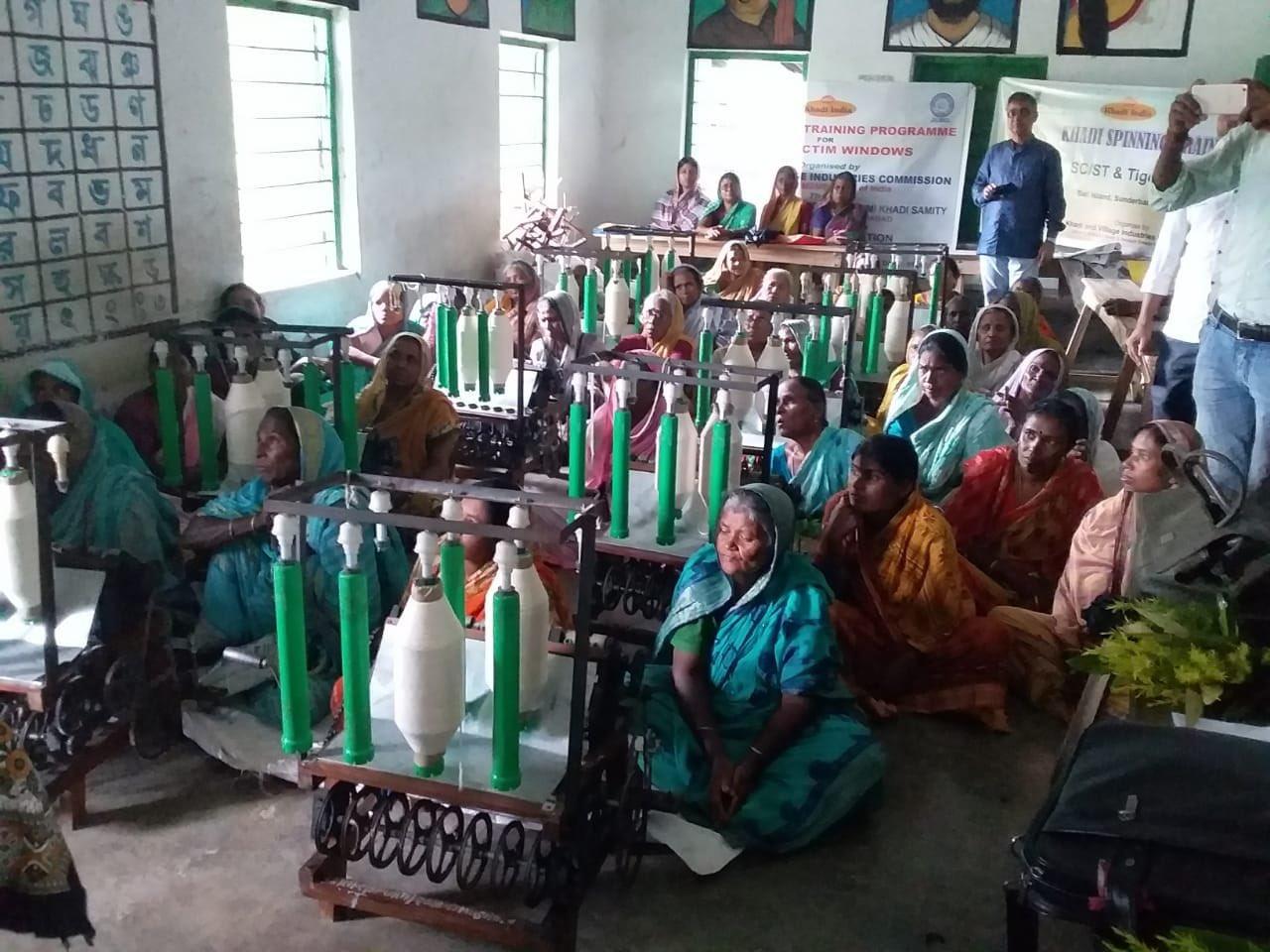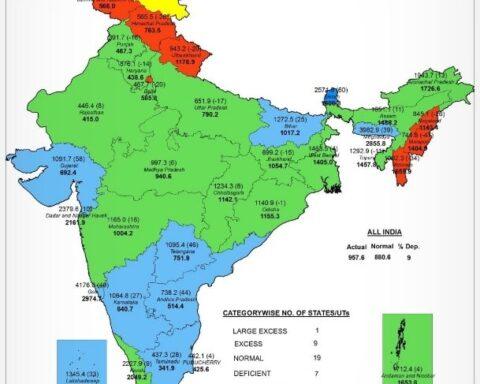Chairman KVIC Vinai Kumar Saxena has inaugurated the newly built 3000 sq feet work shed and a 500 sq feet common facility centre for Khadi artisans at the Bali island. The Tiger Victim Khadi Katai Kendra is now equipped with 125 new model charkhas, 15 modern looms and provides employment to nearly 150 women artisans of the Bali island.
KVIC has also provided these artisans with yarn dyeing machines and readymade garment manufacturing machines. The centre has been modernised at the cost of ₹95 lakh which has been funded by KVIC under its Khadi Reforms and Development Program (KRDP) and Workshed Scheme for Khadi Artisans. The centre is being run by a local Khadi Institution of West Bengal.
Over a hundred tiger widows, called Bag Bidhoba locally, in the Bali island who were engaged with spinning activity by Khadi and Village Industries Commission (KVIC) in 2018, now enjoy modern amenities, advanced equipment such as charkhas and looms and marketing support to provide these women artisans with sustainable livelihood. To begin Khadi activities on the island, KVIC had set up a temporary structure three years ago, which has been converted into a permanent work shed now.
Vinai Kumar Saxena said the Khadi activities on Bali island will ensure financial sustainability of tiger widows, who were staring at a dark future after having lost the breadwinners for their families in tiger attacks. He said, while the self-employment activities will help rehabilitate these hapless women artisans; it will also encourage other families to take up spinning and weaving activities to earn a respectable livelihood, he said.
By taking up Khadi activities, the artisans will be able to earn up to ₹200 per day. He said the idea is also to desist these families from venturing into deep water or thick mangroves for fishing and, thus, mitigate the threat of tiger attacks.
KVIC had inaugurated the spinning centre at Bali island in 2018 and distributed 75 charkhas to rope in local women artisans with spinning activity. KVIC had also distributed 500 bee boxes with live bee colonies to empower the economically backward people of the island by providing them with self-employment. These artisans were also provided with comprehensive training by KVIC.





























